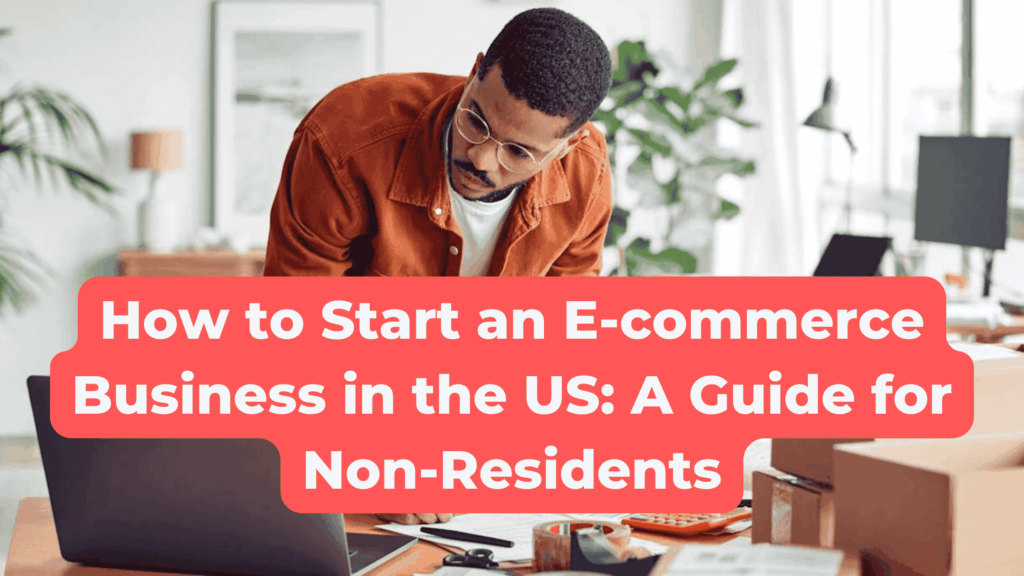Building a successful e-commerce business starts with choosing the right platform. For non-residents setting up an LLC in the United States, understanding which e-commerce platforms align best with your goals and business model is crucial. Here, we explore the top e-commerce platforms that cater to non-resident entrepreneurs launching an LLC in the USA, helping you establish and grow your business efficiently.
Understanding E-commerce Platforms for LLCs
Navigating the world of e-commerce can be overwhelming, especially when operating internationally. Learn more about setting up an LLC as a non-resident to ensure you’re starting on the right foot.
Shopify

Shopify is a leading e-commerce platform known for its user-friendly interface and comprehensive set of tools tailored for businesses of all sizes. For non-residents, Shopify offers several advantages:
Ease of Use: Its intuitive dashboard allows entrepreneurs without technical expertise to manage their stores with ease.
Global Reach: Shopify supports multiple currencies and languages, which is ideal for targeting international markets.
Integrated Payment Solutions: Shopify Payments simplifies the process of setting up payment gateways, a critical component for non-resident LLCs.
Amazon

Amazon remains a powerhouse in the e-commerce world, offering non-resident LLC owners immediate access to a vast audience.
Massive Customer Base: Leveraging Amazon’s existing customer pool can drive sales for your products.
Trusted Brand: Selling on Amazon provides instant credibility to your business.
FBA Program: The Fulfillment by Amazon service ensures efficient handling of inventory and order fulfillment, critical for scaling your business quickly.
Etsy

Etsy is well-suited for entrepreneurs selling unique, handcrafted, or vintage items. It’s an excellent choice for non-residents focused on niche markets.
Niche Marketplace: Etsy’s focus on creative and artisanal products attracts a specific audience, making it easier to find your target market.
Community Support: The platform offers community forums and educational resources to help new sellers succeed.
Lower Entry Barriers: Starting a shop on Etsy requires minimal upfront investment, making it accessible for entrepreneurs with limited budgets.
BigCommerce

BigCommerce provides robust e-commerce solutions for non-resident LLCs that anticipate rapid growth.
Feature-Rich Platform: Offers extensive customization options and powerful integration capabilities with third-party apps.
SEO Advantage: Built-in SEO features help improve your store’s visibility, crucial for generating organic traffic.
B2B Capabilities: BigCommerce excels in supporting B2B operations, ideal for businesses that plan to expand into wholesale or bulk sales.
WooCommerce

WooCommerce is a flexible e-commerce plugin for WordPress, making it an attractive choice for those who want full control over their online store.
Customizability: As an open-source platform, WooCommerce offers endless customization options, allowing you to tailor your store to your exact requirements.
Community and Support: A vast community of developers and users provides extensive resources and support.
Cost-Effectiveness: WooCommerce can be a cost-efficient solution, particularly for those who already use WordPress.
Considerations for Choosing an E-commerce Platform
Payment Processing: Ensure the platform supports international payment processing compatible with your banking setup.
Shipping and Logistics: Choose a platform that integrates seamlessly with global shipping and logistics providers.
Compliance: Be aware of any compliance requirements specific to non-resident businesses operating in the US, such as sales tax regulations.
Conclusion
Choosing the right e-commerce platform is a critical step for the success of your US-based LLC. Each of these platforms offers unique advantages, so it’s essential to consider your specific business needs, target audience, and growth plans. By leveraging these platforms, non-resident entrepreneurs can effectively launch and scale their e-commerce businesses in the competitive US market. For more information on establishing an LLC as a non-resident, visit Clemta.







